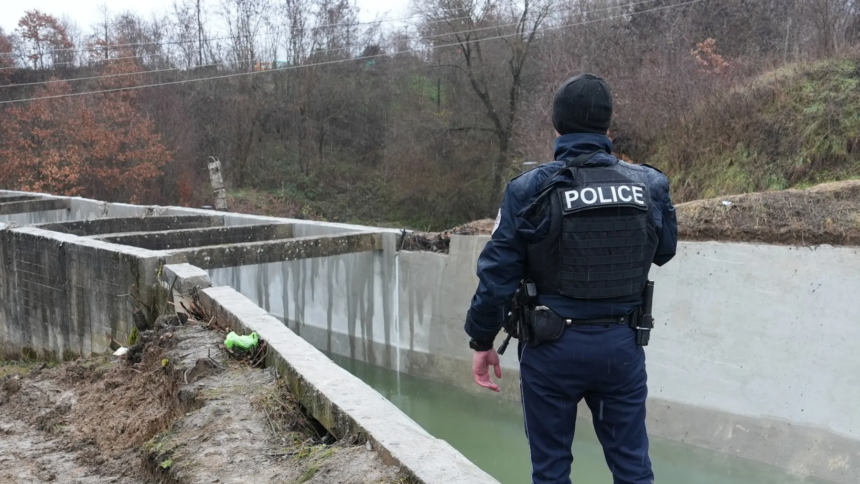The year 2024 proved to be a tumultuous period for Kosovo’s security institutions. Over 12 months, the country faced ongoing threats and attacks from criminal groups with origins in Serbia.
Battles in the North
Kosovo continued its efforts to assert control over the northern territories. The central institutions’ aim to establish law and order in these regions highlighted persistent security challenges. Strained relations with international allies further complicated the situation, as several of Kosovo’s actions in the north were met with sharp criticism.
One of the most alarming incidents occurred on November 29, when a massive explosion of approximately 20 kilograms of explosives severely damaged the Ibër-Lepenc canal in Zubin Potok. The canal supplies water to key regions and facilities, including the Ujmani Reservoir, which supports Kosovo’s energy infrastructure and water supply.
Critical Infrastructure Under Threat
Following the attack, Kosovo Police intensified security measures around critical infrastructure. Security checkpoints were established, and all movements in the area were monitored.
Minister of Internal Affairs, Xhelal Sveçla, labeled the incident as a terrorist act, assuring citizens that efforts to repair the damage were underway to minimize disruptions. The Ibër-Lepenc canal, spanning 49 kilometers, is vital for the water supply of seven municipalities and critical industries such as Kosova A and B power plants, Trepça, and Ferronikeli.
International Reactions
The attack sparked widespread condemnation. President Vjosa Osmani denounced the perpetrators as Serbian criminal groups who had consistently lost their battles against Kosovo’s institutions. International diplomats, including U.S. Ambassador Jeff Hovenier, pledged support for a thorough investigation. Similar statements were issued by representatives from Germany, the EU, and other international bodies.
Broader Security Concerns
Throughout 2024, Kosovo grappled with various security threats in the north, including grenade attacks on police stations and municipal buildings. In August, Kosovo Police shut down nine unlicensed Serbian postal offices operating in the region, further escalating tensions.
The government’s decision to ban the Serbian dinar as legal tender in Kosovo also fueled controversy, with the international community urging Kosovo to reconsider its approach. Serbia had allocated €139 million for Kosovo Serbs in 2024, with concerns that some of these funds were used to support destabilizing groups.
Ongoing Challenges and the Future
Despite these challenges, the government remains steadfast. Prime Minister Albin Kurti has emphasized Kosovo’s commitment to upholding its sovereignty and the rule of law. Efforts to reopen the Mitrovica Bridge for vehicles have faced resistance, highlighting the deep divisions that persist.
While the bridge remains closed to vehicles, it serves as a pedestrian crossing, monitored by Kosovo Police and KFOR soldiers. This enduring symbol of division underscores the need for continued dialogue and coordinated efforts to achieve long-term stability.







